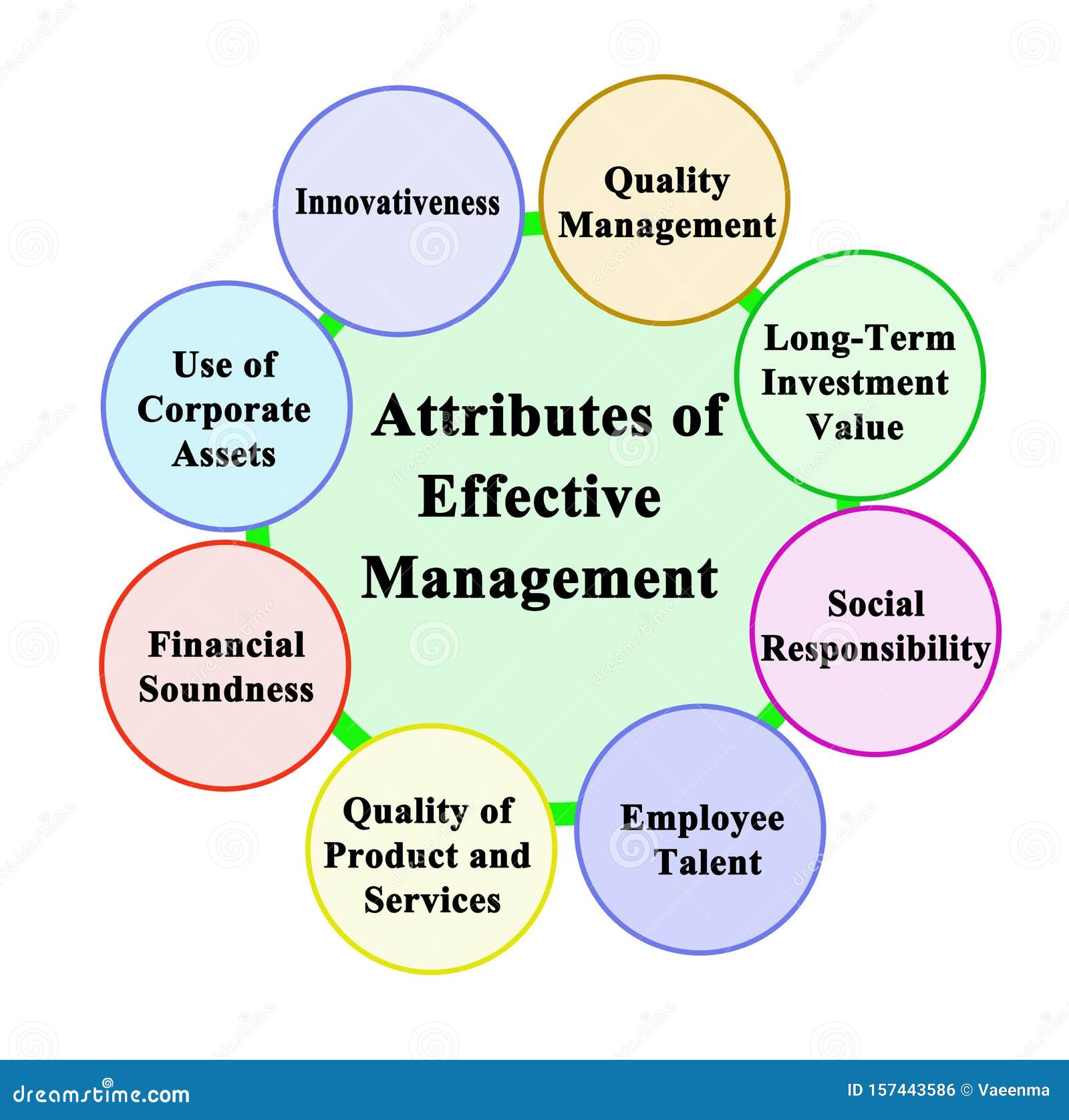Effective management is essential for any organization striving for success in today’s competitive landscape. The qualities of a good manager go beyond mere experience; they encompass a unique blend of interpersonal skills, strategic vision, and analytical thinking. A recent study highlights the importance of identifying effective managers not just through personality traits but by predicting management success through measurable skills such as decision-making and intelligence. With a focus on proper manager selection methods, companies can enhance their leadership capabilities and drive better outcomes. Ultimately, the importance of good managers cannot be overstated, as they are key to fostering a productive work environment that empowers employees to excel.
In the realm of organizational leadership, strong managerial effectiveness is pivotal for achieving operational excellence. The essential traits of knowledgeable leaders determine how well teams navigate challenges and optimize performance. Recent research underscores the necessity of applying systematic methods to assess potential managers, emphasizing skills over traditional metrics like age or gender. Leadership competency further hinges on the ability to make informed decisions that align with an organization’s goals. Therefore, recognizing the critical role that skilled management plays can significantly impact overall productivity and employee satisfaction.
Qualities of a Good Manager
The qualities of a good manager extend far beyond basic leadership capabilities. Effective managers need a blend of interpersonal and analytical skills. They must foster psychological safety within their teams, enabling employees to feel secure when providing and receiving feedback. This environment not only encourages open communication but also helps in building trust, which is crucial for team cohesion. Moreover, being a good communicator is vital; understanding different communication styles can significantly impact how feedback is received and acted upon, thus improving overall team performance.
In addition to emotional intelligence, a good manager must possess strategic vision and decision-making skills. These qualities enable them to effectively allocate resources and strategically plan for team objectives. Assessing the strengths and weaknesses of team members, and aligning them with the organization’s goals, requires a manager to step back and evaluate not only what the team is working towards but also how they can work more efficiently. Thus, a good manager embodies a multifaceted skill set that includes both people skills and critical thinking.
Predicting Management Success Through Testing
Predicting management success is increasingly becoming a scientific endeavor rather than relying on intuition or traditional metrics like age, experience, or personality traits. Recent research highlights that utilizing quantifiable tests, such as IQ assessments and decision-making skill evaluations, can provide a clearer picture of a person’s potential as a manager. The ability to solve problems and make sound economic decisions under pressure are critical predictors of managerial effectiveness. This empirically-backed approach encourages organizations to adopt more analytical methods in their manager selection processes.
The focus on predictive metrics reveals that commonly used methods for manager selection may overlook essential skills that truly drive success in leadership roles. For instance, organizations often promote individuals based on their self-nomination or perceived charisma, rather than proven competencies. This can lead to a misalignment between leadership roles and the skills necessary to excel, ensuring that companies inadvertently choose less effective managers. Therefore, integrating structured assessments into the hiring process not only refines the selection but also enhances overall organizational productivity.
Effective Management and Leadership Skills Assessment
Effective management is defined not just by a title but by a consistent demonstration of leadership skills that lead to team and organizational success. Assessing these skills objectively can take the form of structured leadership skill assessments and management simulations, which provide insight into an individual’s capability to lead effectively. Such assessments allow organizations to identify potential managers who not only thrive in theory but also excel in practical scenarios, particularly in resource allocation and crisis management.
Moreover, leadership skills assessments help in identifying strengths and development areas, ensuring that individuals are not just placed in leadership roles based on preference but are equipped with the necessary skills to succeed. These assessments can guide training and development initiatives, creating a pipeline of future leaders who are both skilled and adaptable to the changing needs of the organization. In this way, the focus shifts from mere selection of management candidates to the development of effective management culture.
The Importance of Good Managers
Good managers are crucial for the success of any organization, as they play a pivotal role in shaping culture, productivity, and employee engagement. They possess the ability to evaluate strategic directions and channel resources effectively, which is essential in today’s fast-paced business environment. The impact of effective management can significantly alter a company’s trajectory, particularly in complex and dynamic landscapes where adaptability is key. A good manager inspires their team to align with the organization’s vision, thereby fostering an environment ripe for innovation and growth.
Furthermore, the ripple effect of effective management extends beyond immediate tasks and responsibilities. It cultivates a culture of accountability and high performance, leading to lower turnover rates and higher employee satisfaction. Organizations that prioritize good management often find that they attract top talent, as prospective employees look for environments where they can thrive under strong leaders. Thus, the importance of good managers cannot be understated; they are integral to not only achieving business objectives but also to building sustainable organizational health and success.
Innovative Manager Selection Methods
Innovative manager selection methods are transforming how organizations approach leadership recruitment. A shift towards scientific methods for identifying managerial talent is becoming prevalent, highlighting the importance of empirical testing over traditional subjective judgments. These methods include assessing candidates based on their performance in controlled tasks that mimic real work environments, allowing for a more accurate evaluation of potential managerial competencies. By utilizing tools such as economic-decision-making assessments, companies can better predict which candidates are likely to excel in leadership roles.
These innovative selection methods also foster a culture that values performance over personality traits, promoting fairness and equality in hiring practices. Additionally, when organizations engage in data-driven manager selection, they significantly enhance the likelihood of finding leaders who not only meet the role’s requirements but also resonate well with the company’s strategic goals, ensuring a greater impact on overall productivity. This approach ultimately leads to a more engaged workforce and a stronger organizational foundation.
Challenges in Selecting Managers
Selecting the right managers poses several challenges for organizations, primarily due to the inherent complexities associated with human behavior and performance. Traditional selection processes often lean towards subjective assessments, which can lead to biases and misjudgments regarding an individual’s potential for leadership. Many organizations may overlook critical performance predictors such as decision-making skills and intelligence, choosing instead to favor traits like charisma or seniority. This misalignment can result in appointing managers who are ill-equipped for their roles.
Moreover, the dynamic nature of workplace needs adds to the difficulty of selecting suitable managers. As organizations evolve, so too do the competencies required for effective leadership. Companies must therefore remain agile in their selection processes, ensuring they consistently evaluate and adapt their criteria for what constitutes a ‘good manager.’ Continual training and development, along with robust interviewing techniques, can help address these challenges, ultimately leading to a more effective management framework.
The Role of Psychological Safety in Management
Psychological safety is a critical factor that affects team dynamics and overall management effectiveness. A good manager knows the importance of establishing an environment where team members feel safe to express their thoughts, questions, and mistakes without fear of repercussions. This not only fosters open communication but encourages a culture of innovation and collaboration, essential for high-performing teams. When employees believe their input is valued, they are more likely to engage actively and contribute meaningfully to organizational goals.
Incorporating psychological safety into management approaches empowers employees to take ownership of their roles, enhancing problem-solving and creativity. Effective managers leverage this quality by encouraging team members to share diverse ideas, which often leads to more innovative solutions and better decision-making processes. Ultimately, prioritizing psychological safety strengthens team cohesion and productivity, reinforcing the importance of good management in achieving organizational success.
Understanding Managerial Effectiveness
Managerial effectiveness is characterized by the ability to influence team performance positively while achieving the organization’s strategic goals. This effectiveness can be measured through various performance indicators, such as team morale, productivity levels, and achievement of key performance indicators (KPIs). Understanding the drivers of managerial effectiveness requires a deep dive into the skills that distinguish high-performing managers from their peers, including their decision-making abilities, communication prowess, and strategic thinking capabilities.
Furthermore, effective managers continuously seek feedback from their teams, using it as a tool for their own growth and to improve team dynamics. By focusing on performance outcomes and employee engagement, organizations can better understand what constitutes effective management. Investing in training programs that enhance these skills further positions managers to navigate challenges more adeptly and to facilitate their teams’ success in the broader organizational context.
The Science Behind Manager Selection
The science behind manager selection emphasizes a systematic approach to identifying effective leaders through rigorous testing and evaluation methodologies. Organizations are increasingly recognizing the importance of these scientific methods, which include assessments of cognitive ability, skills in economic decision-making, and situational simulations. Such approaches provide critical insights into the candidate’s potential to excel in managerial roles, moving beyond anecdotal evidence and intuition that often leads to suboptimal hires.
Consequently, organizations that adopt a scientific framework for manager selection are likely to produce a more competent leadership cadre. This method not only enhances objectivity in hiring practices but also aligns managerial capabilities with organizational needs, ultimately contributing to improved performance outcomes. Investing in the science of selection paves the way for a sustainable leadership strategy that is agile and responsive to the evolving landscape of modern business.
Frequently Asked Questions
What are the key qualities of a good manager that contribute to effective management?
Effective management relies on several key qualities that define a good manager. These include strong communication skills, the ability to create psychological safety for team members, and a strategic vision. A good manager must also possess interpersonal skills to relate well to others and analytical skills to assess team performance objectively. Balancing these qualities is essential for fostering a productive and motivating work environment.
How can organizations predict management success in their teams?
Organizations can predict management success by focusing on measurable skills rather than traditional traits such as personality or experience. Research indicates that two significant predictors include IQ, as assessed by general intelligence tests, and economic-decision-making skills, which measure a manager’s ability to allocate resources effectively and make sound decisions. Focusing on these aspects can help organizations choose more effective managers.
What manager selection methods lead to effective management outcomes?
To achieve effective management outcomes, organizations should employ selection methods that prioritize evidence-based assessments of candidates’ skills rather than reliance on informal traits like charisma or preference for leadership. Scientific approaches, such as performance-based evaluations or structured decision-making tests, can better identify candidates likely to excel in management roles and thus enhance team dynamics and productivity.
How important are leadership skills assessments in identifying effective management capabilities?
Leadership skills assessments are crucial in identifying effective management capabilities. These assessments provide a more objective measure of an individual’s potential to succeed in a leadership role. By evaluating necessary skills such as decision-making, resource allocation, and team motivation, organizations can ensure that they select candidates who are truly capable of effective management.
Why is having good managers essential for organizational success?
Good managers are essential for organizational success as they navigate complex challenges and direct teams toward achieving strategic goals. They play a vital role in resource allocation, team dynamics, and employee performance. Effective management shapes the work environment and influences job satisfaction and productivity, leading to improved overall organizational performance.
| Key Point | Details |
|---|---|
| Good Managers Are Hard to Find | Many companies select managers based on personality, age, or experience, often leading to poor choices. |
| Two Predictive Measures of Effective Management | 1. IQ (measured by Raven’s Progressive Matrices) 2. Economic-decision-making skill (ability to allocate resources effectively) |
| Self-Nomination Bias | Individuals who prefer leadership roles often perform worse than randomly assigned managers due to overconfidence. |
| Importance of Good Management | Effective management is crucial for organizations to strategically navigate challenges, allocate resources, and achieve goals. |
| Managerial Skills Required | Good managers require interpersonal skills, analytical ability, strategic vision, and the capacity to give constructive feedback. |
Summary
Effective management is essential for organizations striving to optimize their performance and navigate complexities. By identifying managers through scientific methods rather than subjective traits, organizations can ensure better decision-making and resource allocation. This approach not only enhances productivity but also creates a culture of accountability and growth, ultimately leading to more sustainable success.


